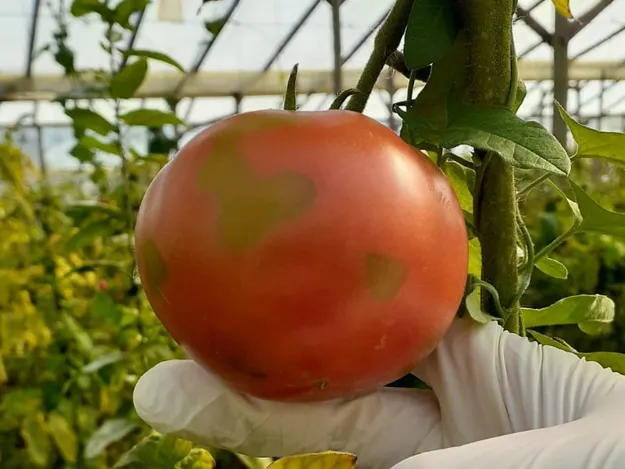After analyzing some samples, the National Agri-Food Health and Quality Service of Argentina (Senasa) has confirmed the detection of the tomato brown rugose virus (ToBRFV) in a plantation located in the town of Oran, in the province of Salta.
"The findings correspond to samples collected from a single tomato plantation that had symptoms compatible with the virus. As a preventive measure and within the framework of Senasa Resolution No. 569/2023, the production establishments were ordered to isolate the production sites where the virus was detected."

Picture: SENASA
"In addition, rigorous hygiene and disinfection measures were established on-site, as well as for the work tools and other elements that may act as possible transmitters of the virus. In July of this year, SENASA declared the phytosanitary alert for the entire national territory in relation to the disease through Resolution 569/2023."
"The goal of this measure is to strengthen joint actions between the public and private sectors to map the situation of ToBRFV in the country, contain and eradicate any outbreaks that may be detected, preventing the virus from establishing and spreading."
"In this regard, SENASA committed to working closely with producers and society, in general, to inform about the situation, share prevention and control measures, and guarantee food security in tomato production. Early detection and coordinated actions are critical to protecting agriculture and the local economy."
"Since the detection of the virus in Argentina, SENASA, together with INTA and INASE, have been working in a coordinated manner to prevent this disease. An inter-institutional crisis committee was also created to have more intensive and coordinated monitoring and prevention work. Likewise, contact with producers, technical support, and communication actions are also the product of the joint work between the institutions."
It's essential that anybody who suspects the disease is present in a field does not touch the possibly contaminated plants, that they isolate the sector, and that they inform the nearest Senasa, INASE, or INTA office about the situation.
Source: argentina.gob.ar
